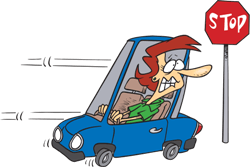Conditionals in English
Common Errors and Tips
In this lesson, we will discuss the most common errors when using conditionals in English.
Click Here for Step-by-Step Rules, Stories and Exercises to Practice All English Tenses
In the English language, a conditional is a sentence that expresses a condition.
A condition is something that must happen before something else can happen.
Conditional sentences commonly begin with words and phrases such as:
- if
- when
- unless
- even if
- only if
- in case
Examples:
- You will be allowed to watch television only if you finish your homework by 9:00.
- I will be at your wedding tomorrow unless my son is still sick.
- When the sun sets, the kids will return home.
- If you want to be paid for a full day, you have to arrive at work on time.
- Even if we leave right now, we will still be late to the wedding.
- Take your cell phone with you in case you need to call me.

Follow the link and view the summary table at the end of the lesson for a quick review.
In this lesson, we will look at the most common errors and tips when using conditionals in modern American English.
The two most common conditionals in the English language are the first conditional and second conditional. They can also be called "real" and "unreal" because one will most likely happen in the future, while the other is not likely to happen at all.
First conditional (real)
Structure:If + Simple Present, + Will/Won't
OR
Will/Won't + If + Simple Present
*Won't = Will + Not
**"If" can be replaced with phrases such as:
- even if
- only if
- in case
- unless
This conditional describes things based on fact.
We use this conditional when referring to conditions that are possible and very likely to happen in the future.
Caution!
The most common mistake is to put will in the conditional clause. The conditional clause must remain in the simple present tense.- Incorrect:
Sam won't go to the dance unless you will ask him. - Correct:
Sam won't go to the dance unless you ask him. - Incorrect:
In case you will need my help, I will be in my classroom until 4:00. - Correct:
In case you need my help, I will be in my classroom until 4:00. - Incorrect:
Sammy will be allowed to play only if he will share his toys. - Correct:
Sammy will be allowed to play only if he shares his toys. - Incorrect:
If you will eat your vegetables, you will be allowed to watch television. - Correct:
If you eat your vegetables, you will be allowed to watch television.

Second conditional (unreal)
Structure:If + Simple Past, + Would/Wouldn't + Base Form
OR
Would/Wouldn't + Base Form + If + Simple Past
*Wouldn't = Would + Not
**"If" can be replaced with phrases such as:
- even if
- only if
- in case
We use this conditional when referring to conditions that are not likely to happen or contrary to present facts.
Caution!
The most common mistake in second conditional is putting would in the conditional clause. The conditional clause must be written in the simple past tense.- Incorrect:
If I would win the big prize, I would take you to dinner at a fancy restaurant. - Correct:
If I won the big prize, I would take you to dinner at a fancy restaurant. - Incorrect:
She would go to Spain only if her parents would buy her a plane ticket. - Correct:
She would go to Spain only if her parents bought her a plane ticket. - Incorrect:
Tom wouldn't like broccoli even if you would cover it in cheese. - Correct:
Tom wouldn't like broccoli even if you covered it in cheese. - Incorrect:
I would be the happiest boy alive if I would have a monkey for a pet. - Correct:
I would be the happiest boy alive if I had a monkey for a pet.

Third conditional (past)
Structure:If + Past Perfect, + Would/Wouldn't have + V3
OR
Would/Wouldn't have + V3 + If + Past Perfect
**Wouldn't = Would + Not
**"If" can be replaced with phrases such as:
- even if
- only if
Caution!
Like the second conditional, the most common mistake for third conditional is putting would in the conditional clause.- Incorrect:
If you would have remembered your list, you would have known what to buy at the store. - Correct:
If you had remembered your list, you would have known what to buy at the store. - Incorrect:
Richard would have shoveled the sidewalk only if he would have known you were arriving. - Correct:
Richard would have shoveled the sidewalk only if he had known you were arriving. - Incorrect:
The students wouldn't have finished their work even if the teacher would have been there. - Correct:
The students wouldn't have finished their work even if the teacher had been there. - Incorrect:
If she had would have filled the car up with gas, she would not have been late. - Correct:
If she had filled the car up with gas, she would not have been late.

Zero conditional (always true)
Structure:If/When + Simple Present + Simple Present
OR
Simple Present + If/When + Simple Present
This type of conditional is almost always true and is in the simple present tense, meaning it can happen any time.
Caution!
The most common mistake is to
use will
in the main
clause.
- Incorrect:
When you leave the milk out, it will become sour. - Correct:
When you leave the milk out, it becomes sour. - Incorrect:
If it is cold inside, the heater will turn on. - Correct:
If it is cold inside, the heater turns on. - Incorrect:
Nick will need medicine if he coughs. - Correct:
Nick needs medicine if he coughs.

Conditionals in English tips for commas
1. When the condition comes first, a comma is usually used after the conditional.
Examples:- If Tommy eats his vegetables, he will be allowed to eat dessert.
- Even if Mom picks me up by 4:30, I won't have time to come to your house before practice.
- If Sally is sick, she must stay home.
- Unless you finish your degree in education, you cannot be hired as a certified teacher.
- When you leave the dog in the house, he tears up the furniture.

2. When the condition comes second, no comma is needed.
Examples:- You will be allowed to listen to music during class if you promise to complete your work.
- Turn off the computer when you are finished.
- Jill will go to the dance with him only if he asks her.
- You won't pass this class unless you study.
- The rain will turn into snow unless the temperature rises soon.

These were common errors and tips of Conditionals in English. Now that you know them, it is time to practice! Read and do exercises.
Resources on English Conditionals:
English Conditionals (First Conditional | Second Conditional | Third Conditional | Zero Conditional)
English Conditionals: A Step-by-Step Workbook
Conditionals in English: Common Errors and Tips
Mixed Conditionals: Explanations and Examples
Mixed Conditionals Short Review
Indicative Mood, Imperative Mood and Subjunctive Mood
"Meredith's Day": A Short Story to Practice English Conditionals
"Weekend Plans": A Short Story to Practice English Conditionals
Reading Text with Conditional Sentences
Unreal Conditionals Lesson Plan
English Conditionals: A Common Mistake
Get Updates, Special Offers, and English Resources
Download your FREE GIFT (the first two chapters of
English Short Stories Book and Workbook)
as soon as you join!

By submitting your email, you consent to receiving updates and newsletters from us and to the sharing of your personal data with third parties for the purposes of sending you communications. We will not spam you. You can unsubscribe at any time. For more information, please see our privacy policy.
Return from Conditionals in English to English Conditionals





